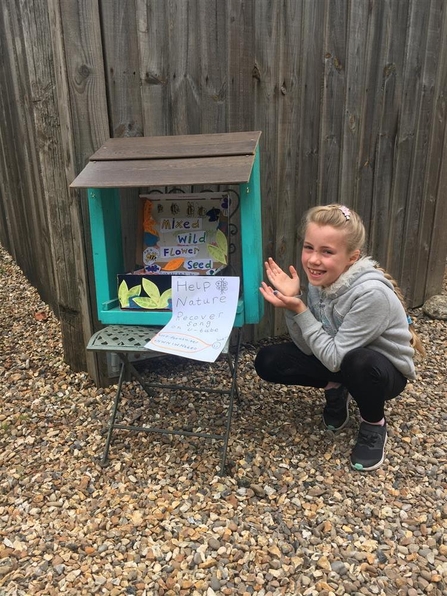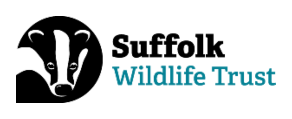This week we were contacted by the Cole family who wanted to pass on the news of their daughter, Isobel, and her mission to help Suffolk’s wildlife. Isobel, aged 9, is working towards her Brownie wildlife badge and has chosen to support Suffolk Wildlife Trust. She has made, and decorated, a stall in her front garden where she is giving out wildflower seeds in hand-decorated potato-printed envelopes for people in her village to take and plant in their own gardens.
Help Nature to Recover - A song by Isobel Cole
hawthorn beginning to flower

As well as encouraging people to plant wild flowers in their gardens, Isobel has written a song, Help nature to recover, to help spread the word about helping wildlife and we think it’s fantastic. In her song, Isobel calls for “people to join her” and hopes that there will be more butterflies and bees, tree blossoms on the streets and nature in the cities. You can watch Isobel’s song here.
Help Nature to Recover - A song by Isobel Cole (https://youtu.be/vNWNlWNb6eo)
Help Nature to Recover - A song by Isobel Cole
‘Help Nature Recover‘
By Isobel Cole, aged 9
By 2040, that’s twenty years
I hope that there will be
Lots of nature all around us
More butterflies and bees
We’ll plant and grow more flowers
Tiny seeds will bring tall trees...
That’s what I want to happen
So, will you please join me?
Plant nature in the cities
Trees blossom in the streets
The homes that we are building
From twigs and grass and leaves
Making the birds happy
So they sing along with me!
That’s what I want to happen,
So, will you please join me?
That’s what I want to happen,
So, will you please join me?
Isobel highlights some great points in her song with what she hopes to see by 2040. With 41% of our insect species declining, insects can certainly do with all the help they can get and planting wildflower seeds will provide essential sources of nectar and pollen for them. Planting wildflowers has benefits beyond pollinator and insect species as they feed into food chains and in turn provides species such as hedgehogs, a nationally declining species, with a food source with caterpillars and beetles making up part of their diets.
If you would like some additional information on how to do this, see our how to guide on how to use wildflower seeds in different ways to suit different sized gardens.
To further support Suffolk’s wildlife, Isobel is kindly raising money for Suffolk Wildlife Trust and has set up a Just Giving page where you can donate to help Isobel to support us to help wildlife across our county.
Perhaps you would like to have a go singing along and learning her song to help spread to word to help wildlife. We’d love to see your videos of you singing along if you have a go. You can send them into us at info@suffolkwildlifetrust.org.
